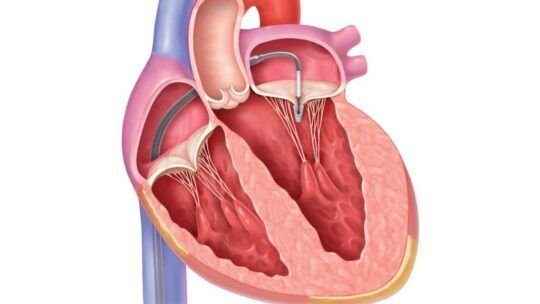
Introduction to Mitral Valve Regurgitation
Definition and Causes
Mitral Valve Regurgitation occurs when the heart’s mitral valve does not close tightly, causing blood to flow backward in the heart. This can lead to various causes, including damage from a heart attack, heart infection, or a congenital heart defect. In some cases, degenerative changes in the valve may also result in regurgitation.
Symptoms and Diagnosis
Symptoms of Mitral Valve Regurgitation may include fatigue, shortness of breath, irregular heartbeats, and swollen feet or ankles. Diagnosis often involves physical exams, listening to the heart, echocardiograms, or other imaging tests to assess the severity of the regurgitation.Understanding the definition, causes, symptoms, and diagnosis of Mitral Valve Regurgitation is crucial for timely medical intervention. Proper management, lifestyle changes, and, in severe cases, surgical options can help alleviate symptoms and improve the quality of life for individuals living with this condition.
Types of Mitral Valve Regurgitation
Acute vs. Chronic
When considering types of Mitral Valve Regurgitation, it is essential to distinguish between acute and chronic forms. Acute regurgitation typically occurs suddenly as a result of conditions such as a heart attack or infective endocarditis. On the other hand, chronic regurgitation develops gradually over time due to factors like degenerative changes in the valve or longstanding heart conditions.
Primary vs. Secondary
Another classification of Mitral Valve Regurgitation is based on whether it is primary or secondary. Primary regurgitation arises from a problem with the valve itself, such as valve prolapse or congenital defects. In contrast, secondary regurgitation is caused by issues outside the valve, such as heart enlargement or damage that affects the valve’s function.Understanding the different types of Mitral Valve Regurgitation is crucial for healthcare professionals to provide appropriate treatment and management strategies based on the specific characteristics of the condition. Identifying the type of regurgitation can guide medical interventions and help improve outcomes for patients.
Risk Factors for Mitral Valve Regurgitation
Age and Gender
Mitral Valve Regurgitation can affect individuals of any age, but certain age groups are more at risk. Elderly individuals are more prone to degenerative changes in the valve, which can lead to regurgitation over time. Additionally, gender plays a role, with women being more likely to develop mitral valve prolapse, a condition that can increase the risk of regurgitation.
Medical Conditions
Various medical conditions can contribute to the development of Mitral Valve Regurgitation. These include heart conditions like coronary artery disease, heart attacks, and infections that can damage the valve. Other underlying health issues such as high blood pressure, rheumatic fever, and connective tissue disorders may also increase the risk of developing regurgitation.Understanding the risk factors associated with Mitral Valve Regurgitation is crucial for healthcare professionals in assessing patients’ likelihood of developing the condition. By identifying these risk factors, medical professionals can implement preventative measures and early interventions to manage and treat Mitral Valve Regurgitation effectively.
Complications of Mitral Valve Regurgitation
Heart Failure
Mitral Valve Regurgitation can lead to serious complications, with heart failure being one of the most significant. When the heart’s left ventricle becomes enlarged and weakened due to the backflow of blood caused by the regurgitation, it can struggle to pump blood effectively throughout the body. This can result in symptoms such as fatigue, shortness of breath, and swelling in the legs and abdomen. Severe cases may require medical intervention or surgical repair to prevent further deterioration of heart function.
Arrhythmias
Another complication associated with Mitral Valve Regurgitation is the development of arrhythmias. The irregular heart rhythms can occur due to the strain placed on the heart by the regurgitation, leading to palpitations, dizziness, and in severe cases, fainting. Managing arrhythmias in individuals with mitral valve regurgitation is essential to prevent complications such as blood clots or stroke.Understanding these potential complications of Mitral Valve Regurgitation is crucial for healthcare professionals in providing comprehensive care to patients with this condition. Early detection and appropriate management can help improve outcomes and quality of life for those affected.
Also Read: Expert Mitral Valve Replacement Surgery – Top Cardiac…
Treatment Options for Mitral Valve Regurgitation
Mitral Valve Regurgitation necessitates appropriate treatment to manage its associated complications effectively. Healthcare providers have various options available to address this condition and enhance patient outcomes.
Medications
Medications play a crucial role in managing Mitral Valve Regurgitation. Diuretics can help reduce fluid retention, easing symptoms like swelling. ACE inhibitors and beta-blockers may be prescribed to lower blood pressure and improve heart function. Blood thinners are often recommended to prevent clot formation and decrease the risk of stroke in some cases.
Surgical Interventions
In more severe instances of Mitral Valve Regurgitation, surgical interventions may be necessary. Procedures such as valve repair or replacement can restore proper valve function and prevent further damage to the heart. Minimally invasive surgeries are becoming increasingly common, offering quicker recovery times and improved overall outcomes for patients.Understanding these treatment options is vital for healthcare professionals to tailor care plans effectively and improve the quality of life for individuals dealing with Mitral Valve Regurgitation.
